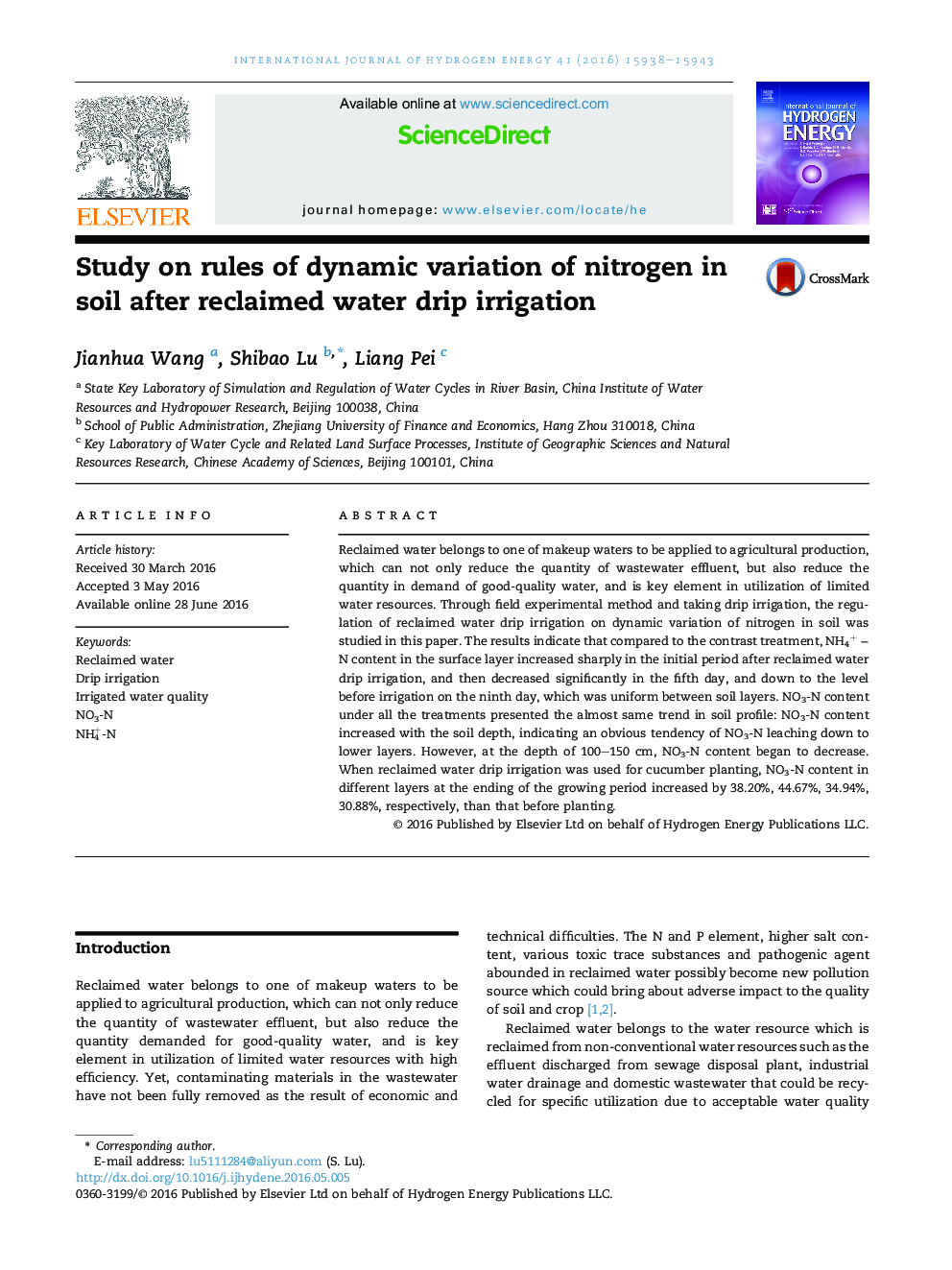| Article ID | Journal | Published Year | Pages | File Type |
|---|---|---|---|---|
| 1270323 | International Journal of Hydrogen Energy | 2016 | 6 Pages |
Reclaimed water belongs to one of makeup waters to be applied to agricultural production, which can not only reduce the quantity of wastewater effluent, but also reduce the quantity in demand of good-quality water, and is key element in utilization of limited water resources. Through field experimental method and taking drip irrigation, the regulation of reclaimed water drip irrigation on dynamic variation of nitrogen in soil was studied in this paper. The results indicate that compared to the contrast treatment, NH4+-NNH4+-N content in the surface layer increased sharply in the initial period after reclaimed water drip irrigation, and then decreased significantly in the fifth day, and down to the level before irrigation on the ninth day, which was uniform between soil layers. NO3-N content under all the treatments presented the almost same trend in soil profile: NO3-N content increased with the soil depth, indicating an obvious tendency of NO3-N leaching down to lower layers. However, at the depth of 100–150 cm, NO3-N content began to decrease. When reclaimed water drip irrigation was used for cucumber planting, NO3-N content in different layers at the ending of the growing period increased by 38.20%, 44.67%, 34.94%, 30.88%, respectively, than that before planting.
